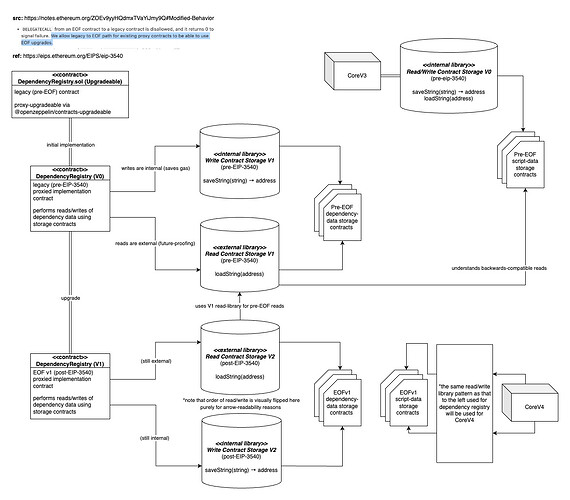Would it make sense to have the code section sizes in the type section rather than in the header?
At the time of writing, the header is dynamically sized based on the number of code sections, this complicates header validation. In addition, this splits up function metadata a bit. We need to check the header to get the function’s size, then the type section to get the functions’ inputs, outputs, and max stack depth, then finally the code section to get the function’s instructions.
If the code size (u16) is stored in the type section, then we could have all of the function metadata in the same place.
Current container:
container := header, body
header := magic, version, kind_type, type_size, kind_code, num_code_sections, code_size+, kind_data, data_size, terminator
body := type_section, code_section+, data_section
type_section := (inputs, outputs, max_stack_height)+
Proposed container:
container := header, body
header := magic, version, kind_type, type_size, kind_code, num_code_sections, kind_data, data_size, terminator
body := type_section, code_section+, data_section
type_section := (inputs, outputs, max_stack_height, size)+
With the proposed schema, the header will always be 13 bytes, simplifying header parsing and allowing functions to be validated as the type section is parsed without having to refer back to the header.
